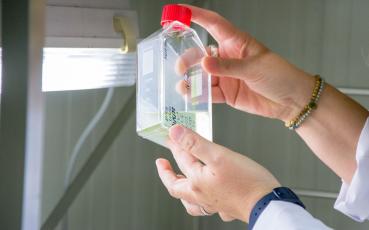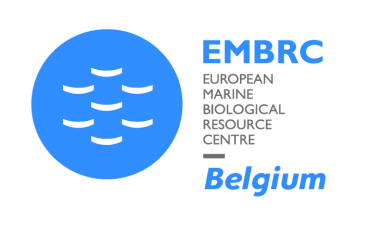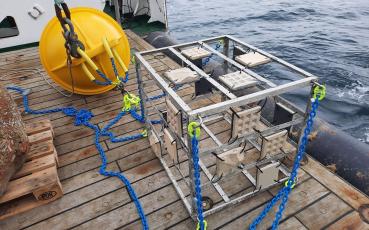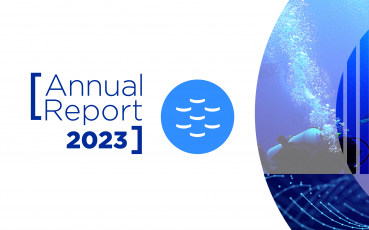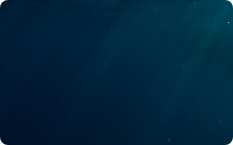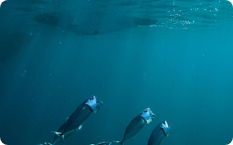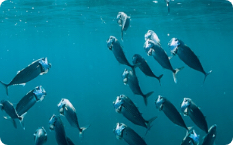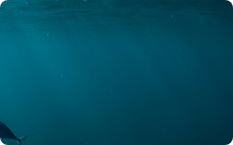Scientists of the Institute of Natural Sciences have concluded the first sampling campaign of the Littoral Modules within the EcoMPV project (Eco-designing Marine Photovoltaic Installations). This sampling event, conducted on October 23, 2023, aims to investigate the habitat provisioning effect of artificial floating structures for marine fouling fauna and fish, one EcoMPV’s objectives.
Therefore, three Littoral Modules were designed and developed by Jan De Nul Group, in collaboration with the Institute of Natural Sciences and EMBRC Belgium (European Marine Biological Resource Centre). These floating modules act as the foundation for various settlement plates, constructed out of materials interesting for marine offshore installations. The Littoral Modules were deployed in May/June 2023 in the safety zone of Mermaid offshore wind farm by the RV Belgica and the Zeetijger. This test site closely resembles the water mass present in the Princess Elizabeth Zone (PEZ), a newly designated zone for offshore energy production.
During the campaign, the RBINS scientific dive team retrieved the first batch of settlement plates from each littoral module. On board of the RV Belgica, each plate was photographed for quantitative coverage image analysis and subsequently preserved for taxonomic analysis. The data collected from the Littoral Modules will provide a comprehensive understanding of early colonization processes, offering crucial insights for the development of eco-friendly marine photovoltaic installations. The EcoMPV project is financed by the Energy Transition Fund of the FPS Economy, AD Energy.
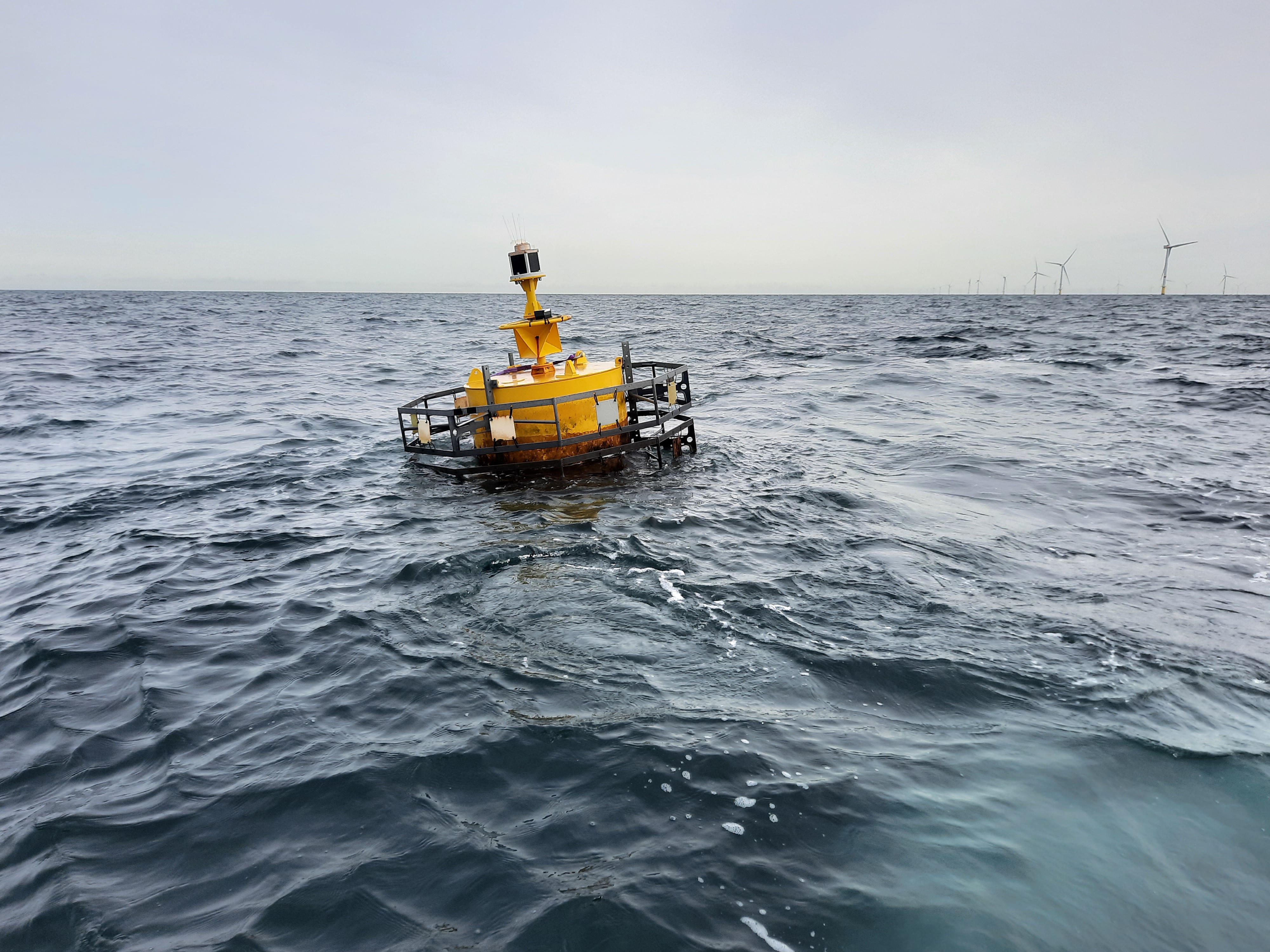 One Littoral Module, prior to the sampling event. ©Mareco – Institute of Natural Sciences
One Littoral Module, prior to the sampling event. ©Mareco – Institute of Natural Sciences
After the completion of the EcoMPV project, the Littoral Modules will be integrated as scientific equipment in the Artificial Hard Substrate Garden. This Artificial Hard Substrate Garden (AHSG) is an innovative in-situ experimental platform. The AHSG is managed by the Institute of Natural Sciences, consists of flexible and modular artificial hard substrate devices. It is designed to study the impacts of man-made structures, including mariculture installations, renewable energy devices, antifouling treatments, coastal protection structures, and more, on marine environments. Graphic designer Hendrik Gheerardyn has recently crafted an informative infographic providing an overview of the devices and their respective sampling range.
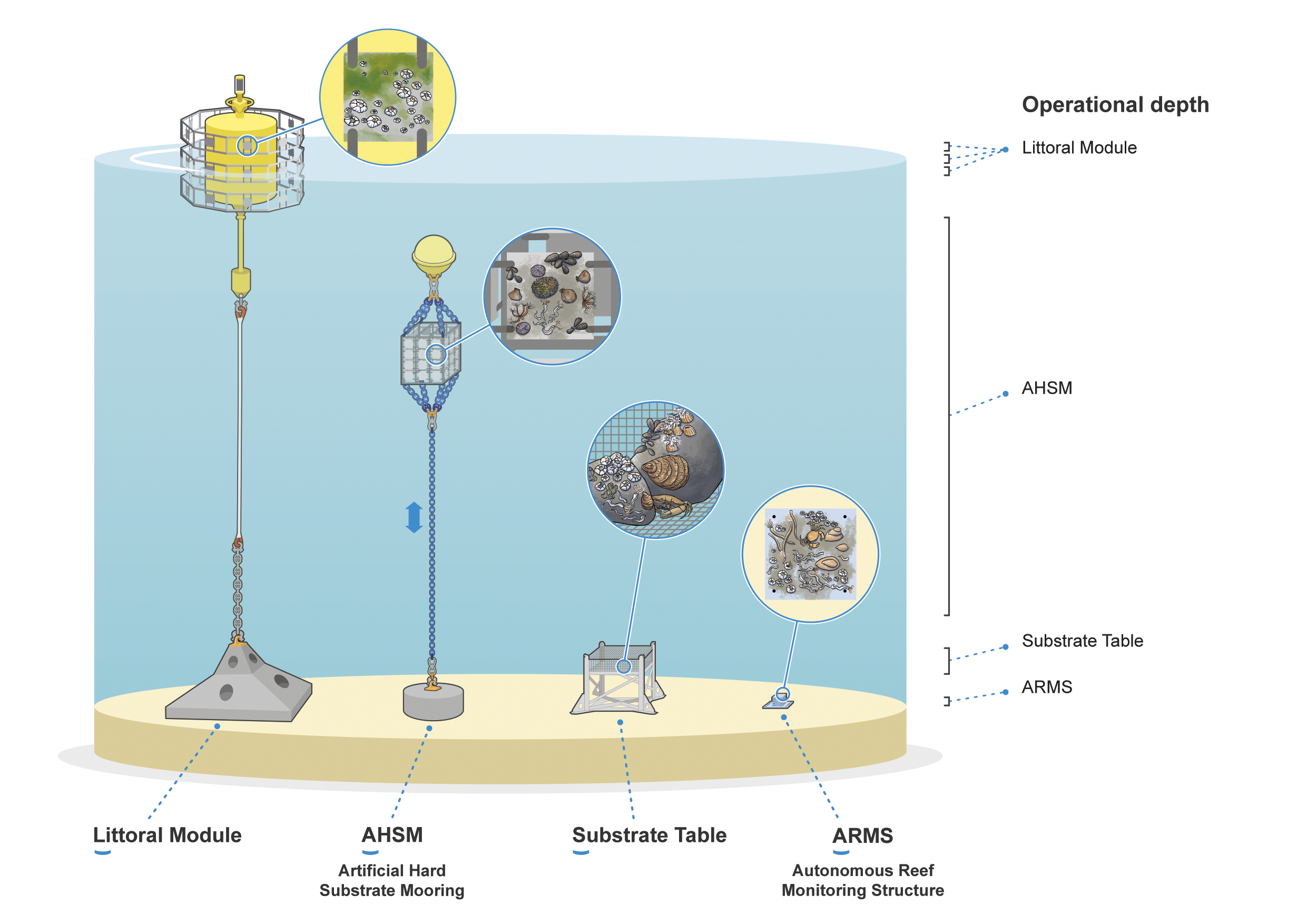
Overview of the different components available within the Artificial Hard Substrate Garden. ©Hendrik Gheerardyn
The AHSG is offered as an EMBRC research service to both the scientific community and the industry. For further details on the Artificial Hard Substrate Garden, please visit https://mareco-odnature.naturalsciences.be/service/artificial-hard-substrate-garden/ or contact wdeclercq@naturalsciences.be.










